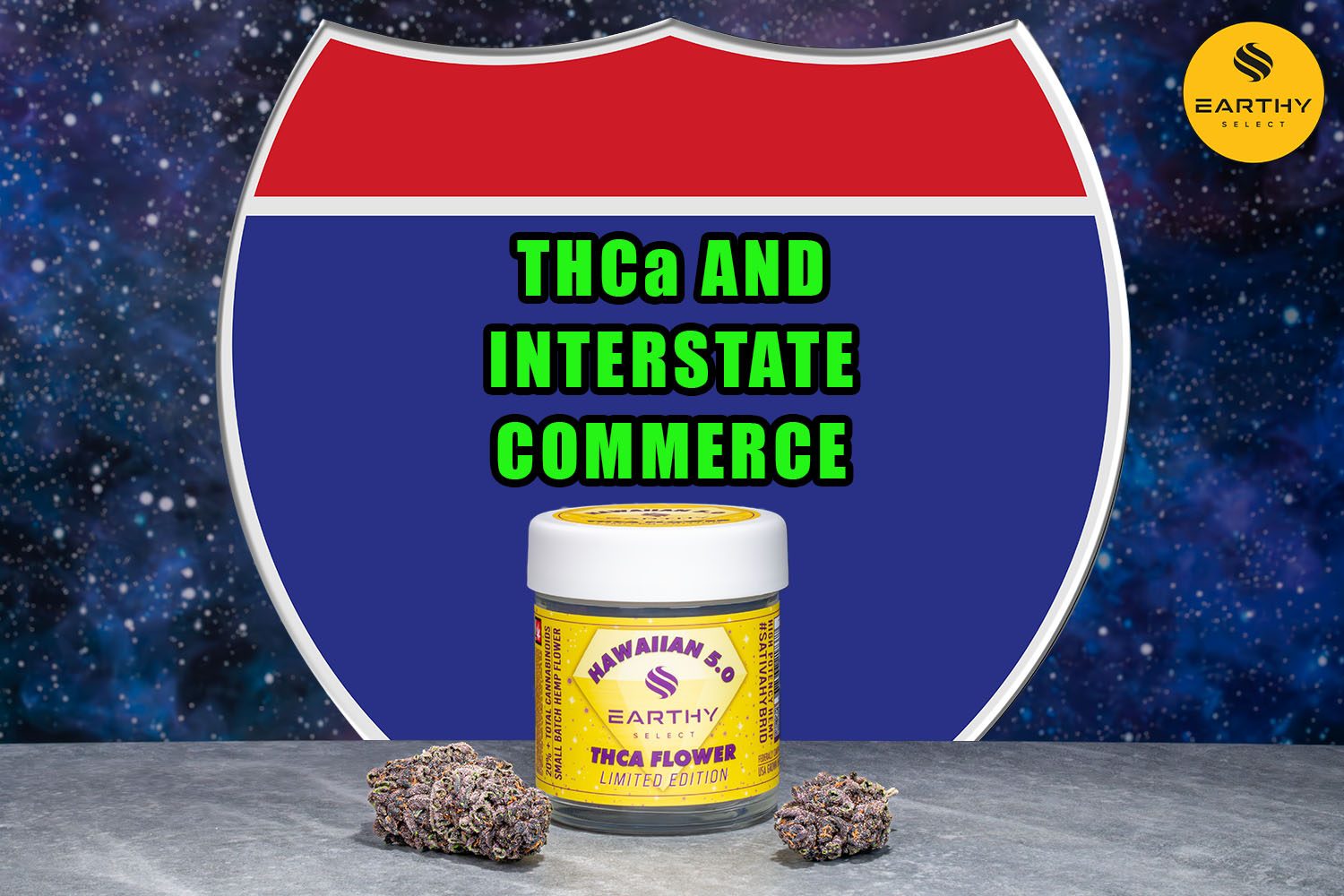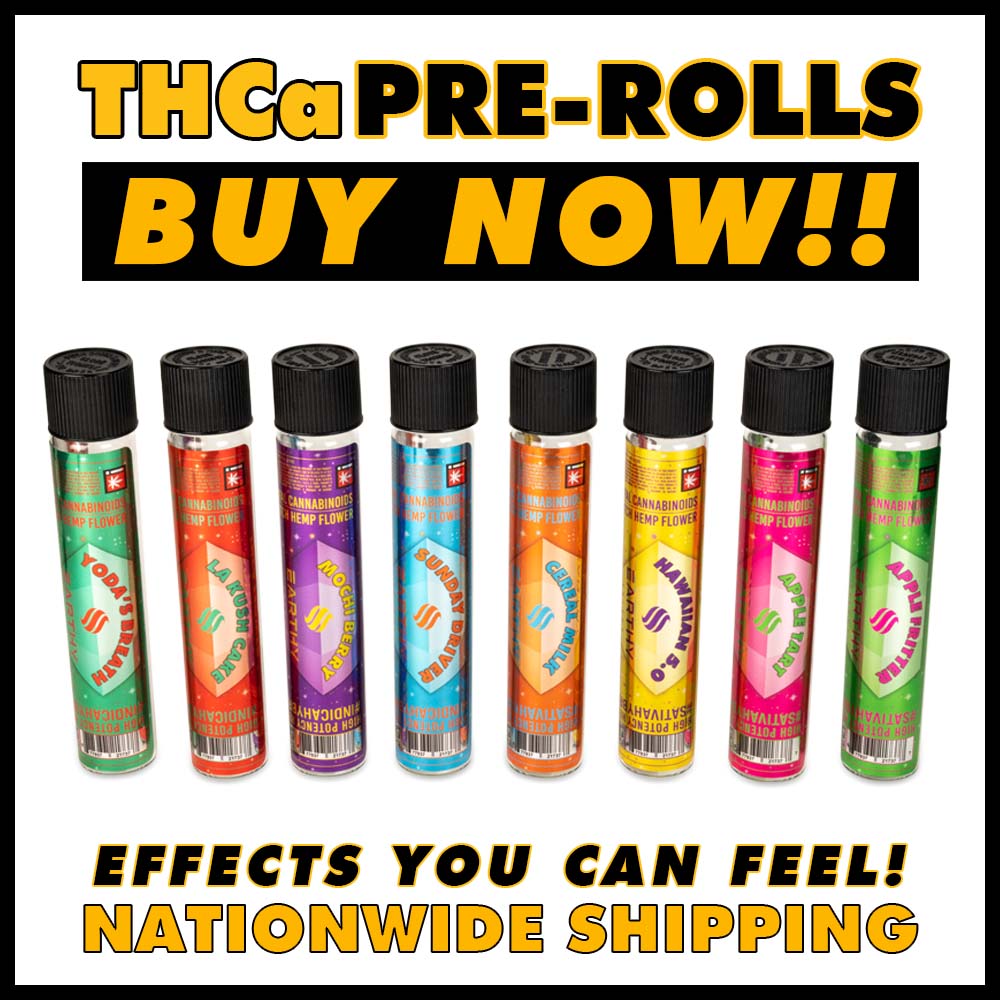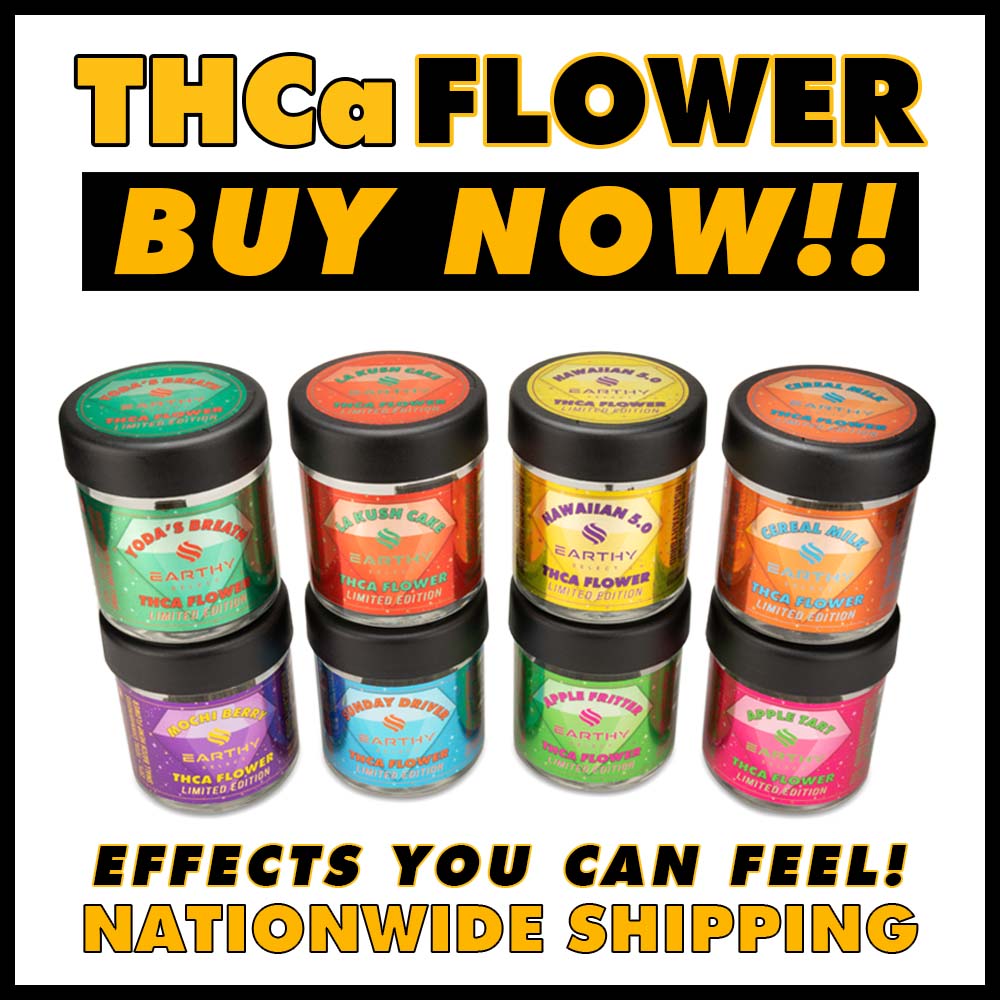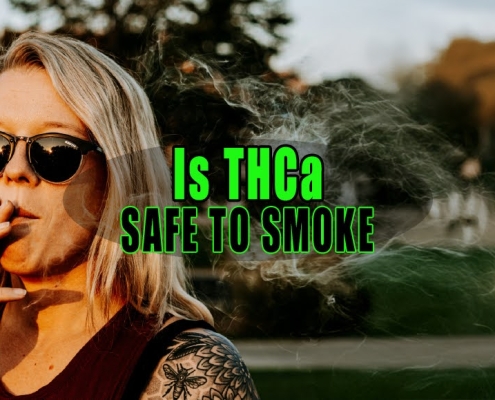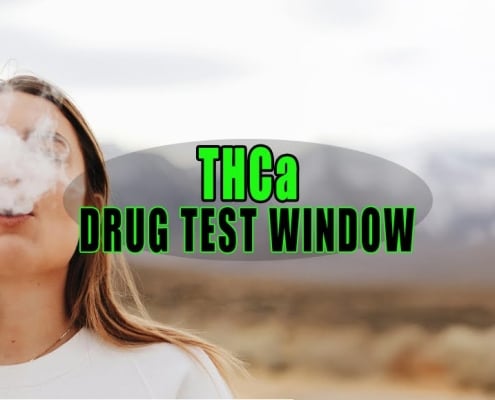THCa and Interstate Commerce
Until recently, federal law didn’t differentiate hemp from marijuana. In other words, any form of cannabis was considered a Schedule 1 substance under the federal Controlled Substances Act, and was outlawed. But the Federal Government changed this in 2018 when Congress passed the Agricultural Improvement Act, otherwise known as the Farm Bill. Today, questions about THC, THCa and interstate commerce arise as people grapple with the Farm Bill’s language and its definition of hemp.
By removing hemp and hemp-derived products from the definition of marijuana, the bill effectively made hemp legal in all 50 states, paving the way for the legalized cannabis industry as we now know it today.
But, many have questions about the fine print of the Farm Bill. For instance, what are the rules for interstate commerce concerning potentially psychoactive cannabinoids? More specifically, what are the regulations regarding THCa and interstate commerce?
We’ll dig into these questions and more to help you sort through the often-confusing guidelines of the Farm Bill as it applies to THCa.
What is THCa?
THCa (tetrahydrocannabinolic acid) is the acidic precursor to THC (tetrahydrocannabinol)—the primary psychoactive component of cannabis. As it grows, cannabis produces cannabinoids in the form of carboxylic acids, which change into non-acidic cannabinoids through decarboxylation. Delta-9 THC is the post-acidic outcome of THCa and has psychoactive potential, unlike THCa [1].
Abundant in fresh cannabis, THCa changes with heat. Through decarboxylation, a THCa flower will become psychoactive as soon as it is smoked, vaped, or cooked. This aspect of THCa makes lab tests challenging to assess [2].
Learn more in the Guide to THCa.
The Farm Bills and the legality of hemp
The “Farm Bill” refers to legislation passed when Congress passes new agricultural policies approximately every five years. Impacting farmers, businesses, and consumers nationwide, these bills set federal policies for agriculture and forestry. Issues revolving around cannabis legality have been at the forefront of recent Farm Bills. For example, in 2014, the legal status of cannabis changed, making hemp and hemp-derived products legal for research. Federal law expanded hemp legalization further with the 2018 Farm Bill, which set specific rules regarding a national market for hemp [3].
Navigating the Legal Landscape of THCa: Which States Allow THCa Concentrates?
What is the 2014 Farm Bill?
The outcome of the 2014 Farm Bill was the Hemp Research Pilot Program, which allowed research into cannabis to begin after decades of cannabis prohibition. It also changed the definition of hemp versus marijuana. More specifically, the bill defined hemp as “the plant Cannabis sativa L. and any part of such plant, whether growing or not, with a Delta-9 THC concentration of not more than 0.3% on a dry weight basis.”
The Hemp Research Pilot Program allowed scientists to finally explore new theories about the potential medical and therapeutic applications of cannabis [4].
How the 2018 Farm Bill spurred the cannabis industry
Cannabis research showed the nation just how powerful the hemp plant could be. The 2018 Farm Bill sparked the modern cannabis industry, removing the federal ban and allowing a robust cannabis market to emerge. In particular, the Agriculture Improvement Act of 2018 (another name for the 2018 Farm Bill) authorized hemp cultivation, production, and sales as long as the plant contained no more than 0.3 percent Delta-9 THC. It also removed all hemp derivatives and hemp seeds from the Drug Enforcement Administration’s (DEA) schedule of Controlled Substances.
Moreover, the bill established the Domestic Hemp Production Program, which legalized industrial hemp at the federal level, but more specific authority over hemp restrictions to state laws. Appointing the USDA to evaluate and approve plans submitted by state legislatures and tribal authorities, the bill established federal regulations for hemp growers, buyers, and sellers [5].
Approved with bipartisan support, the bill ushered in widespread hemp cultivation and cannabis businesses. As a result of the bill, the hemp industry exploded as cannabis-derived compounds became mainstream.
Yet, the 2018 Farm Bill does not refer to any THC except Delta-9 THC, leaving questions about specific products with psychoactive potential. Since THCa can easily be turned into THC via smoking, vaping, or cooking, it can become as psychoactive as some marijuana. But because the bill only considers the level of Delta-9 THC when assessing if a plant is hemp or marijuana, many people seek hemp with high THCa to satisfy their cannabis needs.
What is “THCa hemp flower?”
THCa hemp flower refers to cannabis flower, or buds, with high amounts of THCa, intended for smoking or vaping. These hemp products contain high levels of THCa but low enough levels of Delta-9 THC to pass federal enforcement action. This allows the product to meet federal compliance guidelines while offering the potential for psychoactive effects.
THCa hemp flower is in such demand because it sometimes has little difference from marijuana. Thus, seekers of psychoactive cannabis may obtain THCa hemp flower without the implications of purchasing marijuana.
You do not get high if you eat raw THCa flower because THCa does not bind to CB1 receptors in your endocannabinoid system in the same way as Delta-9 THC. But when you light up the THCa flower, it loses a carboxyl ring and binds with your CB1 receptors [2].
On the surface, it would seem like THCa flower allows you to reap the pleasures of marijuana without the hurdles associated with marijuana. But it’s not quite that simple.
Is THCa considered hemp or marijuana?
Both hemp and marijuana contain THCa. The cannabinoid is abundant in all freshly growing cannabis. In states where recreational marijuana is legal, consumers may have access to cannabinoids that come from either hemp or marijuana. In non-green states, hemp derived THCa is federally compliant, assuming its Delta-9 THC level falls at or below the 0.3 percent threshold. Some states also have a “total THC” test, which includes THCa. Even so, the DEA only tests for Delta-9 THC content.
Thus, businesses and consumers can obtain federally compliant cannabis with high levels of THCa. For example, even if the plant has been coated with hemp-derived THCa after harvest, it is still federally compliant [6].
Earthy Select uses only farm-grown cannabis, cultivated for its high THCa hemp flower. They don’t spray or treat the buds to increase the THCa content – it’s grown in!
THCa and interstate commerce
Even as federal agencies allow hemp-derived products such as THCa, to be transported, sold and used, states can dictate their own rules and regulations. Also, state laws can vary and change, so it’s essential to check your state’s legal guidelines concerning THCa before you purchase a THCa product.
Some states may limit access to THCa and may not be as likely to look to the Farm Bill guidelines when assessing its legality. These states may consider the “total THC” concentration of a cannabis plant when testing for compliance [7].
Furthermore, as state laws change, there may be little or no warning to consumers or businesses about THCa and interstate commerce as it relates to their state. Check for the latest updates on your state’s hemp laws if you plan on enjoying THCa flower.
THCa and State Compliance: Is it Legal in My State?
How is THCa different from Delta-9 THC?
The most notable difference between THCa and Delta-9 THC is that one is intoxicating, and the other is not.
However, when you heat THCa, removing a carboxyl ring, its molecular structure changes to become psychoactive THC. At that point the THC will be able to bind with the brain’s CB1 receptors to produce a high, unlike its acidic precursor.
THC and THCa may actually be more similar than different at the end of the day. medically, they may also share similar effects, and both are being studied as anti-emetic or anti-nausea remedies, in addition to other potentially useful uses. The results of scientific research will bring these to light in due time [8].
Is THCa a controlled substance?
Hemp-derived THCa is not a controlled substance because of the terminology of the 2018 Farm Bill [9]. The bill defines hemp as ‘the plant Cannabis sativa L. and any part of that plant, including the seeds thereof and all derivatives, extracts, cannabinoids, isomers, acids, salts, and salts of isomers, whether growing or not, with a delta-9 tetrahydrocannabinol concentration of not more than 0.3 percent on a dry weight basis [10].” Due to this change, hemp was removed from the DEA’s list of controlled substances.
Nonetheless, state legalization is murkier. Federally compliant cannabis products may not comply with a given state regulation if the state passes new laws of their own. As state laws are continually subject to change, it’s important to check your state’s current guidelines concerning THCa [11].
So will using decarboxylated THCa be an issue with a drug screening for marijuana? Read Will THCa Show Up on a Drug for all the details.
Benefits of THCa
Pure THCa is rumored to have healthy properties. Preliminary studies have also shown that THCa has potential protective qualities that may slow certain ailments. Additionally, some studies indicate that THCa may ease specific symptoms and provide relief to consumers. More research is needed to substantiate these initial studies [8].
Does THCa get you high? It’s complicated. By itself in the raw form, no, but if it is decarboxylated by smoking or vaping, it probably will – see the next section for the details.
What is decarboxylation, and how does it change THCa?
Decarboxylation is the chemical process of removing a carboxyl ring from the chemical structure of the molecule. One way to achieve this is to apply heat to the THCa cannabinoid.
All cannabinoids within the cannabis flowers possess an additional carboxyl ring represented as “COOH” in chemistry. When heated to the appropriate temperature, the cannabinoid loses its extra carboxyl group. This molecular modification enables it to interact efficiently with cannabinoid receptors in the human body. In the case of THCa, it becomes Delta-9 THC after decarboxylation [12].
The decarboxylation process relies on the temperature level, and the time the cannabinoid spends at this temperature. For example, after exposure to heat, THCa will decarboxylate immediately.
Learn more in How to Use THCa for Great Results
Key takeaway to THCa and interstate commerce
The important thing to remember about THCa and interstate commerce is that Farm Bill sanctions it. That is, businesses are free to transport, and consumers may buy THCa flower over state lines as long as the product is hemp-derived and meets the standard under the definitions of federally compliant hemp. All of Earthy Select’s fine cannabis goods are third party tested for purity and potency. Nonetheless, it is the consumer’s responsibility to review their state law concerning THCa possession. The good news is the federal government gives you the green light.
The Ultimate Guide to THCa Flower
Medical Disclaimer / Legal Disclaimer – Information is provided for educational purposes. It does not and is not intended to constitute legal advice or medical advice. We attempt to be accurate and up-to-date, but the legality of cannabinoids and the science of cannabis are evolving. The author is neither a legal professional nor a medical expert. Before buying or using any products, you should check with your local authorities and medical providers
References
-
- Wikipedia-THCa
- What are the Benefits of THCa?
- Lab Testing Guidelines-THCa
- The Farm Bills
- National Review- The Farm Bills
- THCa Flower-The Next Big Thing in Hempland
- THCa-Where is it Legal?
- What is THCa and How is it Different than THC?
- THC- Controlled Substance?
- Cornell-Definition of Hemp
- THCa-What States Restrict It?
- Decarboxylation- THCa
- Wikipedia-The Commerce Clause
Frequently Asked Questions
Can you ship THCa hemp flower?
Yes, THCa hemp flower with less than 0.3% Delta-9 THC is federally compliant for interstate transportation under the 2018 Farm Bill.
Does THCa flower get me high?
THCa flower in its raw form cannot bind with endocannabinoid system receptors so it doesn’t produce psychoctivity. If decarboxylated, THCa flower will convert to THC which does have the ability to make a person feel high or intoxicated.
Where do you buy THCa hemp flower?
You can order THCa Hemp Flower online from Earthy Select!

